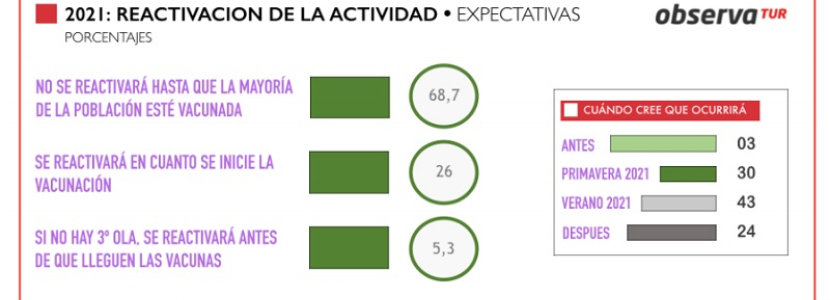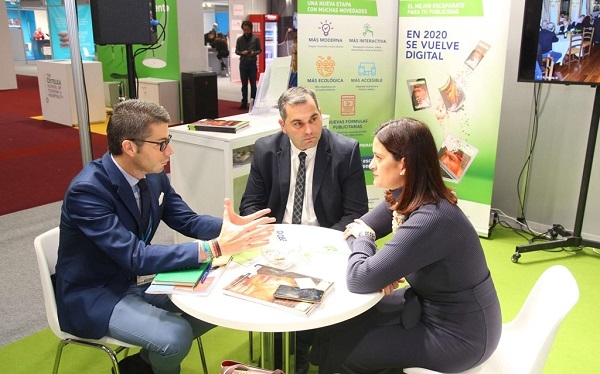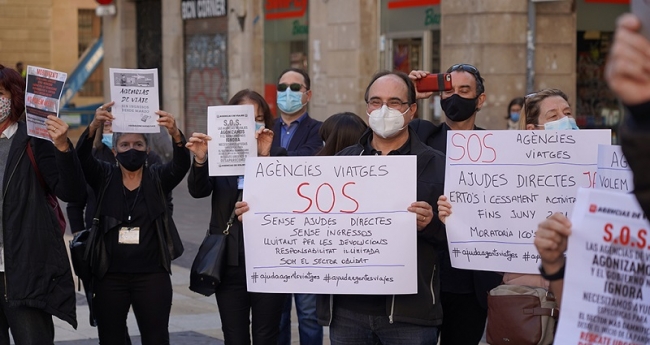
83.3% of professionals say that in 2020 they will lose at least 80% of last year's turnover
Seven out of ten national travel agents believe that the revival of tourism activity will begin when the majority of the population is vaccinated. And most believe that this will not happen until next summer or later (67%). In addition, 84% of respondents think that it will be a slow or very slow recovery.
This is the opinion at least of the professionals from the agencies consulted for the preparation of the 2020/2021 Season Report of the National Observatory of Outbound Tourism (ObservaTUR).
The report was presented on Monday at a remote event attended by representatives of the companies that make up this Observatory: Amadeus, AON, Beroni, Carrefour Viajes, IAG7/Airmet, Iberia, Movelia, ReiniziaT, Renfe-SNCF in Cooperation and the National Association of Travel Agencies (UNAV).
A year to forget
83.3% of travel agents say they will lose at least 80% of last year's turnover by 2020 as a result of the pandemic, according to the season report.
In addition, 75% of the agencies with a turnover of more than 1.5 million in 2019 say they will lose 80% or more in 2020. Because of these figures, 30.9% of the agencies have not been able to maintain all the employees they had before the health emergency and 23%, although still maintaining them, expect that they will have to make redundancies soon.
Likewise, the report points out that 84.5% of travel agents believe that in 2021 the turnover levels of 2019 will not be recovered, that is to say, 72.3% consider that half or less than last year will be invoiced, while the most frequent estimate is that between 30% and 50% will be invoiced.
Thus, on average, and according to the vision of Spanish travel agents, it will take 1.75 years to reach the previous level of activity, i.e., it will not happen before the summer of 2022.
However, the population's desire to travel - which has been dormant throughout the health emergency - and the existence of very attractive travel offers may accelerate the pace of recovery, according to agency professionals.
The role that could be played by the increase in household savings and, above all, the possible less competition in the market, on the other hand, generates less consensus and more disparity of opinion among the participants in the ObservaTUR study, the sixth to produce this analysis and monitoring instrument.
With regard to the economic factor, in fact, the agents think that it may actually be a more threatening brake on the future of the recovery, as a result of the fall in income in many of the households. The persistence of fear of contagion and health insecurity can also be a major drag on activity.
Profile of the journey and the traveller in 2021
Although recovery will be slow and slow, most agency representatives consulted say that there will be a return to the same trips as before the pandemic: 70% say that the trips will be "nothing" or "just a little different".
With regard to the future behaviour of customers in the coming year, it is thought that the most important group of travellers in the early stages will be people aged between 35 and 50, who will travel as a family and with a partner. They will book trips of 57 nights or less with a hotel and, although in a less majority way, will choose to travel by plane.
One of the rising values for future travel would be flexibility in booking, as the agreement between the agencies is practically unanimous. For a large majority, health guarantees will also be very important.
Similarly, it is thought that bookings will be delayed as a result of fear of resurgence. A significant number of respondents also believe that more environmentally responsible travel will be sought. Six out of ten also believe that there will be an increased need for information on travel and destination.
More doubtful, however, is that new ways of travelling will be sought: practically the same people believe that this will not happen (32%) as those who are betting on this change (31%).
In the opinion of the agency professionals, the destinations that would first recover would be the national beaches (both peninsular and island) together with the European capitals. The Caribbean, rural destinations and natural areas would also be in an advantageous position.
The most effective action for destinations to overcome the crisis caused by the Covid-19 pandemic, in the opinion of travel agents, would be to collaborate more closely with agencies and tour operators (78% point to them as the first or second most effective solution). Secondly, the new health measures adopted should be highlighted (indicated in this case by 67%).
The role of travel agencies
Regarding what the travel agencies of the future should be like, in the face of the new reality left behind by the pandemic, those interviewed think that clients will value three aspects in particular: professional advice, security and guarantees and the ability to personalise trips. Behind these, there would be knowledge about the health measures of suppliers and empathy to understand the customer.
Finally, chosen by a very small proportion of agents, the technological and information tools provided to travellers and the knowledge of complex destinations appear, which, at least from the point of view of their professionals, will play a very ancillary role in the future.
Personalised advice, on the other hand, would not only be the element of the service most appreciated by the majority of clients, but is also the one which is expected to have the greatest economic relevance in the future (the
55.3% say so), followed by the marketing of insurance (pointed out by 28.3%) and the contracting of activities in the destination (15%).
Credits https://www.agenttravel.es/noticia-040208_La-vacuna-clave-para-la-vuelta-de-la-normalidad-segun-los-agentes-de-viajes.html





